Bande à Parte (1964)
Dir. Jean-Luc Godard
Writ. Jean-Luc Godard, based loosely on Dorothy Hitchins's novel
w/ Anna Karina, Claude Brasseur, and Sami Frey
With little going on in Odile's life besides an English class, she quickly, unwittingly ensnares herself in a heist of money from her aunt and guardian's safe. Coquettish looks and misunderstood conversation between a misfit girl and two young men dabbling with the idea of being gangsters at first results in lackadaisical hanging out, but soon turns mean-spirited.
The story, one of bored youth without direction or guidance, is nothing new. A few notable implementations, though, veer this away from a typical '60s romp à la Annette Funicello. Black and white film, for one. It shimmers with high-key lighting, open skies, and white walls; and, while it may not have a lot of honorable intention or content, resistance to smiling at parts can prove futile. Each scene has urgency, due mainly to the "live reporting" camera techniques.
Godard gives the actors little pith with which to mold their characters, an aspect that would've felt asphyxiating to many actors of that time and of today. Karina, for the most part, contours her features into a pitiable frown meant, presumably, to convey a smorgasbord of emotions ranging from confusion to dislike. She frowns a lot. The scenes where the trio enjoy each other's company -- when they dance the Madison or attempt a minute of silence -- feel the most natural, the most credible.
Could this be too much digging into a film constructed to look fresh and cool, and timbred with Michel Legrand's light-hearted Parisian score? Possibly. Godard piecemealed the script together, day by day, using what sets he could and, more often than not, existing lighting. He didn't overly concern himself with characterization, plot, or story development. What his efforts lack in depth and substance doesn't get made up for with realistic cinematography and fresh, rebellious approach.
Hackneyed writing, stringed fragments of pop culture references, may project cool and crisp, but attention to craft serves the cast, crew, and audience much better, providing the respect and structure needed for actors to apply their medium. To wit, although Anna Karina is an undeniable beauty, placing her in front of the camera and rolling does not a feature film make. She does her best, but often resorts to eye-candy posturing.
The most praisable aspect of Godard's work may be that it never purports to be something that it is not. For a couple of other reasons besides this, Bande à Parte didn't get relegated to the arena of kitsch. Since Godard's style changed dramatically from film to film, his pulpy followings never congealed to the thickness of a John Waters or an Ed Wood fan base. He also creates a whimsical atmosphere that remains consistent throughout, the mark of a good director, if not a great writer. Perhaps the best moment arrives when Karina sings on the subway, a sad song that reflects her state of mind more than it supports the story.
An irony exists that helps to bridge the comprehension gap between contemporary French filmmaking and the old New Wave. Jean-Pierre Jeunet's Amelie, despised by many a self-titled film buff who will readily claim any of Godard's pieces as an automatic better film, nods to him while also upstaging the New Wave giant. On the whole, Jeunet creates a more interesting, character-supported, and sweetly rendered peek at French filmmaking. Why? Attention to detail, involvement of the audience in the experience, ideals posessing no substitutes.
What Godard has put down for posterity often looks good, but fails to deliver in any tangible way. The sites of Paris, the offhand innocence of a young girl, and the excitement of being in a "band of outsiders" holds universal appeal to youthful decadence, an audience that bemoans the perception of the grass always being greener on the other side of the pond. In reality, though, Bande à Parte does little else to conjure the imagination or inspire.
It ends, as it began, at nowhere, but at least the journey held some little magic as it went along. Perhaps that, more than an overt reaction to the mainstream filmmaking of the time, held the greatest importance to the writer. I liked the middle parts most.


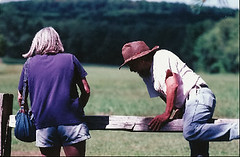
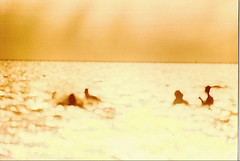

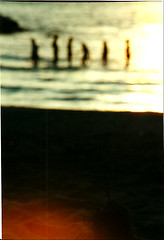
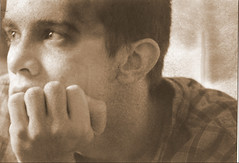
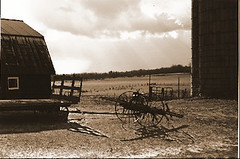
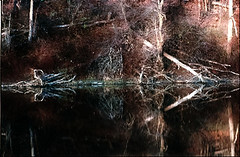






0 Comments:
Post a Comment
<< Home